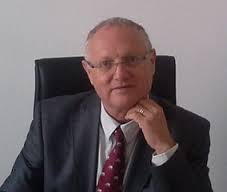Mr Ami Mehl, the Israeli Ambassador to Ghana, has warned African leaders to be mindful of the activities of extremist groups such as the ISIS and Al-Qaeda to prevent the repetition of the Holocaust.
The Holocaust refers to the mass murder of six million Jews and millions of other nationals, leading up to and during the World War II. The killings took place in Europe between 1933 and 1945. They were organized by the German Nazi Party, which was led by Adolf Hitler.
He said the activities of Islamic State (ISIS), Al-Qaeda and other extremist groups should be a wake- up call for all democratic countries to brace themselves up for any eventualities, noting that the Holocaust started in a similar way but the world failed to recognise and curtail it.
Mr Mehl said this during a public lecture, organised by the University of Cape Coat (UCC), to herald the observation of the International Holocaust Remembrance Day, scheduled for January 27.
The lecture, attended by students, heads of departments and faculties, the UNDP Resident Representative, as well as the ambassadors of Russia, Ethiopia and Germany to Ghana, was under the theme “Holocaust and Human Dignity”.
The Israeli Ambassador, particularly, cautioned the leadership of Ghana to be very vigilant and protective of its people and come all out to fight extremist groups if the nation wanted to stay a democratic one.
Mr Mehl pointed out that due to the massive destruction and abuse of human rights and dignity during the holocaust no amount of compensation could commensurate the suffering the Jewish people faced during the Nazi Regime.
“What compensation can be given to the genocide that resulted in the death of six million Jews, one million Romans, 250,00 mentally and physically disabled people and 9,000 homosexual men by the Nazi Regime and its collaborators” he asked?
He said the only compensation that could be given for the holocaust would be the observation of the remembrance day and the education of the younger generation to fight against the re-occurrence of the holocaust and also to learn lessons for future development.
Mr Mehl said there was the possibility of re-occurrence of that genocide and cited the Rwandan genocide and the activities of ISIS as some of the possible signs that holocaust could happen again if stringent measures were not taken to address them.
Mrs Lea Roshkovsky, an Educator from the World’s Premier Holocaust Education Institute, Yad Vashaem, who was the guest speaker, said slave trade and holocaust were similar and that people all over the world should endeavour to prevent such atrocities from ever happening again in the world.
She pointed out that the Nazi Regime used propaganda to deceive the world and then managed to commit the heinous atrocities against humanity, saying never again should such atrocities be allowed in any part of the world.
Mrs Roshkovsky, who took the participants through the various stages of the holocaust , said holocaust atrocities should be made known to the world and people should make efforts to learn about it, to prevent its re-occurrence.
Mr Rudiger John, the German Ambassador to Ghana, said the remembrance of the holocaust was very significant for the people of Germany and that it offered them the chance to learn lessons from it.
He said the holocaust Remembrance Day had become an integral part of German History and everything was being done, including legal justice, to stand against any form of exclusion and violence against humanity.
Professor George Oduro, Pro- Vice Chancellor of the UCC, who presided over the lecture, said he was happy that the University was selected to host such an important event.
But he expressed concerns about the way the participants were taken through strict security checks before they were allowed into the lecture hall.
He noted that the threats of terrorists had created fear and panic in most countries and people had to go through strict security checks before they were even allowed to participate in a public lecture, which he noted greatly affected the attendance of the lecture.
General News of Wednesday, 27 January 2016
Source: GNA
African leaders warned over extremist groups
 Mr Ami Mehl, Israeli Ambassador to Ghana
Mr Ami Mehl, Israeli Ambassador to Ghana












